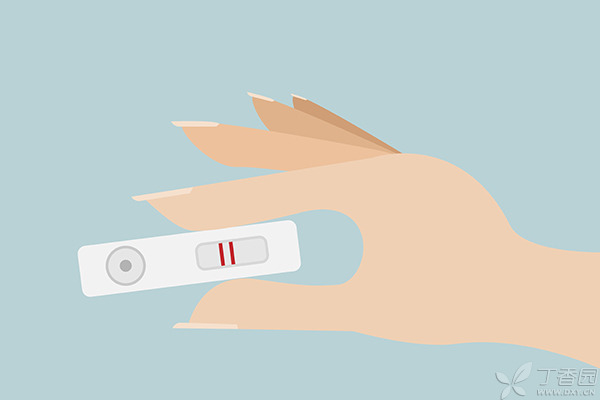
In daily life, female friends may have unprotected sex for some reasons, or take emergency contraceptives when contraceptive failure (such as condom breakage, slippage, missing and wrong use of short-acting contraceptives, etc.), or when they suffer accidental injuries and other emergencies.
But to their perplexity, they were pregnant as a result!
Under what circumstances will the emergency contraception fail?
The survey shows that the effective rate of emergency contraception is about 80%, which means:
About 20% of women still fail after taking emergency contraceptives!
So, what are the reasons that will lead to the failure of emergency contraception?
1. Pregnant
If there are many unprotected sex lives before taking the emergency contraceptive pill, and the fertilized egg has been successfully implanted in the uterus after the previous sex life, the emergency contraceptive pill can no longer produce contraceptive effect.
In other words, taking emergency contraceptives when already pregnant will not interrupt the pregnancy.
2. Take medicine many times during one menstrual period.
Emergency contraceptives can only work on one unprotected sex that has occurred. Women who have another unprotected sex after taking the medicine may still be pregnant. Emergency contraceptives can only be used once in a menstrual cycle, and may fail the second time.
Therefore, after taking medicine and before menstruation recovers, there should be no more protective sex life.
3. Take medicine for more than 72 h
The contraceptive effect is related to the interval between sharing the same room and using drugs. The earlier after sexual intercourse, the better the effect. With the extension of taking drugs, the contraceptive failure rate tends to increase.
Some women failed to follow the instructions in the drug instructions and took the drug for more than 72 hours.
4. Influence of antibiotics and other drugs
If you take emergency contraceptives while taking other drugs, it is likely to lead to contraceptive failure.
For example, during antibiotic therapy, The pill should not be chosen for contraception, Because antibacterial drugs can inhibit the reproduction of bacteria in intestinal tract and reduce the decomposition of hormone conjugates, such as penicillin, ampicillin, tetracycline, etc., they can destroy normal bacteria in intestinal tract, reduce bacterial activity, interfere with the normal circulation of steroid hormones in liver and intestinal tract, and lead to the reduction of steroid hormone concentration in blood, thus leading to contraceptive failure.
5. Vomited after taking the medicine
Severe nausea and vomiting shortly after taking the medicine, or diarrhea and fever during taking the emergency contraceptive, will also affect the absorption of the emergency contraceptive and lead to contraceptive failure.
6. Bones are clear and strange, and luck is too bad.
Individual women have no mistakes in taking methods, but due to individual differences, different absorption and utilization of drugs can also cause contraceptive failure, which can be simply called: bad luck.

How to take emergency contraception correctly?
-
Grasp the time, take the emergency contraceptive pill must be within 72 hours after the event, and the earlier the pill is taken, the better the effect will be. Over 72 hours, the failure rate will be higher.
-
Drug emergency contraception can only work for this unprotected sex life. After taking emergency contraception, other reliable contraceptive measures should still be taken for sex before the next menstruation.
-
Emergency contraceptives can only be used once in a menstrual cycle, and may fail the second time.
-
Taking levonorgestrel is best after meals or before going to bed, which can reduce nausea and other adverse reactions. Do not eat before and after taking mifepristone for 2 hours, which is conducive to the absorption of drugs. If vomiting occurs within 2 hours of taking the medicine, you should take it once.
-
People with cold, fever, acute enteritis and vomiting should not choose emergency contraception, which will affect the absorption of emergency contraception.
-
After taking emergency contraception, the menstrual cycle should be calculated. If menstruation is found to be delayed for more than 10 days, you should go to the hospital in time to check whether emergency contraception fails.

Emergency contraception fails, should the child [flow] or [stay]?
Relevant research believes that within 2 weeks from the beginning of fertilization, the influence of any embryonic toxic drug or toxic and harmful substance on the embryo is [all] or [no]. In other words, the influence of emergency contraception or other toxic and harmful substances on the embryo is: either causing the child to miscarry, or what cannot affect the child, and the child can continue pregnancy without what problems.
Fertilization usually occurs in the middle of menstruation, If menstruation is once every 28 days, then the benefit of [all or none] is probably valid for within one month after menopause. During this period, if you take emergency contraceptives without knowing your pregnancy or get pregnant after taking emergency contraceptives, you don’t have to be too nervous. As long as the child survives, there is generally no what problem.
If you don’t plan to have children for the time being, you need to go to the hospital as soon as possible for the next step.
It should be emphasized that emergency contraception is only a remedial measure and should not be used as a conventional contraceptive method. Its effective rate is significantly lower than that of conventional contraceptive methods, and its side effects are significantly higher than that of conventional contraceptives due to large doses of estrogen and progesterone.
Therefore, one should correctly choose the contraceptive method suitable for one’s own, such as condoms or short-acting contraceptives, instead of relying on emergency contraceptives.
Responsible Editor: Katherine
